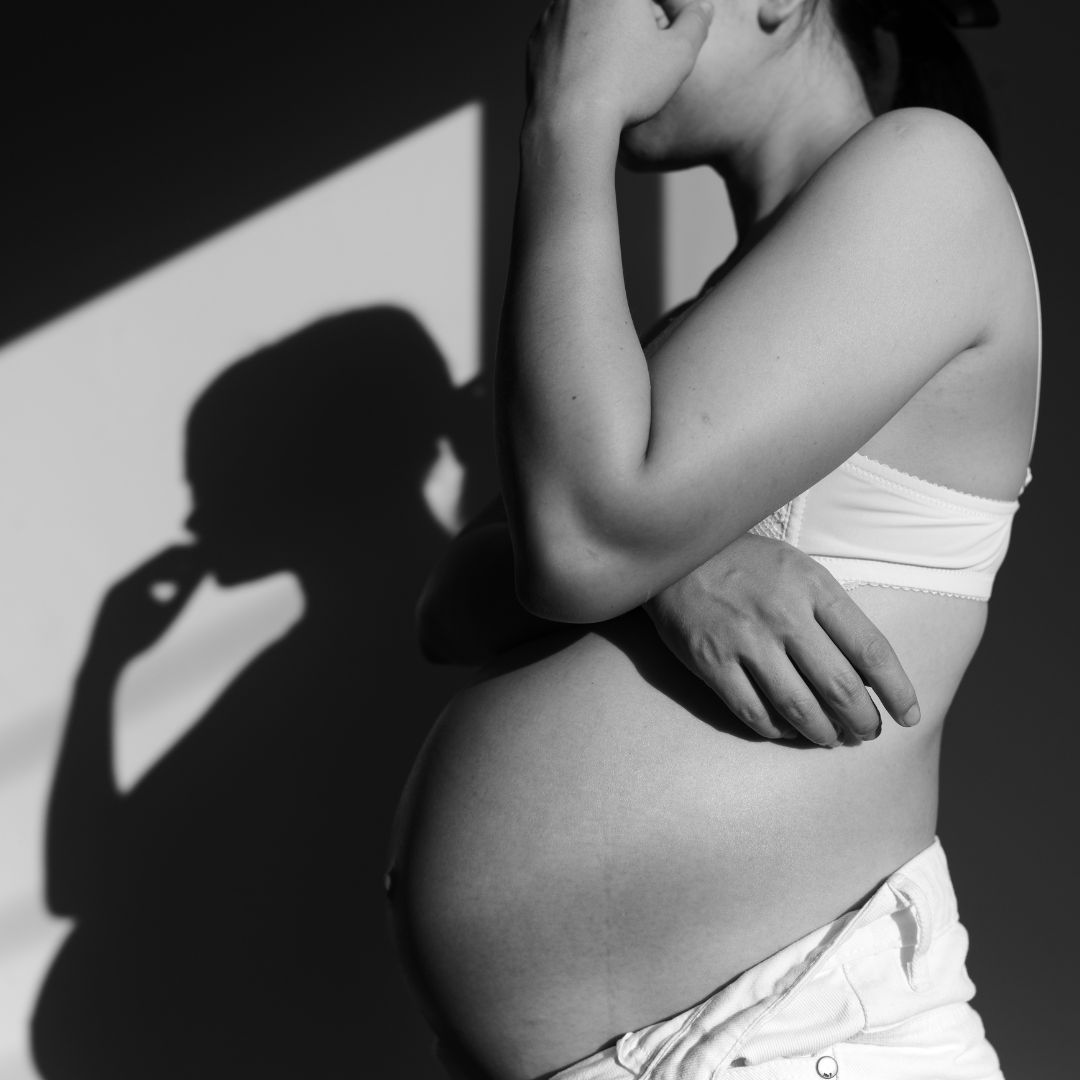
Campaigners at the charity Pregnant Then Screwed have published new data that shows more women than ever are being fired while pregnant or on maternity leave.
Despite maternity leave protections in the UK being enshrined in law, the data, conducted in partnership with Women In Data reveals that the motherhood penalty is getting worse, not better.
Every year, as many as 74,000 women lose their jobs after getting pregnant or taking maternity leave—a sharp rise from 54,000 women in 2016.
Maternity leave should be a time to recover from childbirth and for parents to bond with their baby and adjust to their new life. But increasingly, new mothers are finding that this time is marred by the fear of losing their jobs.
Of the 35,800 parents surveyed, the report found that 12.3% of women are sacked, constructively dismissed or made redundant whilst pregnant, on maternity leave or within a year of returning from maternity leave. If scaled up to the general population, this could mean as many as 74,000 women a year are forced to leave their jobs. All this at a time when women are increasingly being blamed for falling fertility rates.
This shameful statistic highlights a worrying trend in the UK workforce—one that exposes significant gaps in employment protection and challenges the government’s commitment to gender equality. It’s an experience Ann-Marie Kinlock knows all too well.
Kinlock—who is launching KindHaus, a co-working space and childcare service for new mothers—was made redundant when pregnant with her first child, here, she shares her experience of navigating new motherhood while facing unemployment and financial hardship.
As told to Mischa Anouk Smith
“I was working as Head of UX for a financial services company when I discovered I was pregnant with my first child. I was delighted and really looking forward to motherhood. I saw myself taking a full year to immerse myself in this new bountiful life, but I was anxious about what it might mean for my career. Little did I know the challenges that lay ahead.
At just two months pregnant, the company decided to close the London office and I was made redundant. I assumed I’d be at my job until the baby arrived and then go on maternity leave. Suddenly, instead of planning my new life I was polishing my CV and scrambling for job interviews. The stress was overwhelming and I worried constantly about how it might affect the baby.

I felt like a fraud. Like I was committing a crime, but I just needed to get back to work.
Looking for a job knowing you are pregnant is nerve-wracking—I felt like a fraud. Like I was committing a crime, but I just needed to get back to work. I remember putting on an extra baggy shirt for interviews. I’d have these great conversations and then on the way home, I’d feel like a complete fake. It was horrible.
I managed to secure a new position at a lovely boutique agency within a month. The relief was short-lived though. I was so worried I couldn’t even celebrate. I spent the rest of my time there worrying if they’d hate me for taking the job.
I loved my job, but the sense of dread leading up to the 25th week of my pregnancy was awful. I wasn’t legally obliged to say anything before then, but more than anything, I was too scared to tell them. When the day finally came, I could see my manager was disappointed but seemed to take it well. No special arrangements were made, I just cracked on, grateful to still have a job and keen to prove I could still do good work. And work, I did, right until I was 8 months pregnant. I felt really healthy so I pushed my mat leave as far back as possible with the plan to take a year off after the baby arrived.
When my son was seven months old, an email came…
I went on maternity leave feeling relatively secure. A week after the baby arrived I sent the usual baby pic with a message to the team. Then, when my son was seven months old, an email came. The company was making an announcement and they wanted us all to come into the office to hear the news first-hand. The following week I received a redundancy letter with a 1-week notice period. I was devastated.
Surviving on Maternity Allowance was a struggle I never anticipated. Because I’d joined the company in May and my baby was due in October I’d missed the threshold to qualify for Maternity Pay. I would be thousands of pounds short every month.
My husband's salary at the time was just about able to cover the rent, utilities and food. Everything else was on me. My savings soon disappeared, I missed bill payments and my credit score spiralled—as did my mental health. The constant worry about money cast a shadow over what should have been a joyous time with my new baby.

Nursery costs for a child under one were shocking. The lack of flexibility really threw me. Nurseries had their rules on minimum days and what those days could be. Their survival depended on these rules, but they left me isolated. I couldn’t survive any longer on Maternity Allowance. I needed to generate an income but I couldn’t afford the cost of childcare.
Re-entering the 9-5 felt impossible at the time with a young child. I was still breastfeeding. So I decided to prepare to set up my own business consolidating my experience in digital and design to help level the playing field for small businesses. I patched together a network of care using family and friends, but it regularly fell apart—people had their lives to live after all.
Eventually, I came to the sad conclusion that it was better to give up on my business dreams to focus on being a stay-at-home mum. Without reliable care, I couldn’t get through the work. Eventually, my financial situation got worse and I felt forced to return to full-time work.
This deal meant that we chose to spend up to 10 hours a day away from the children we dearly loved.
I managed to secure a Lead UX role at a cool integrated agency. My manager had three kids and provided the much-needed moral and practical support navigating working life with kids. But I was leaving my baby at times for 10 hours a day in childcare. Everything in me told me that this was not for me. Grateful to even have a job I tried to push away the guilt.
On the flip side, going back to work gave me access to lots of other working mums. The more we spoke the more I realised we’d all felt we’d been given an ultimatum—work and survive financially or stay at home and lose our income. We chose to work. This deal meant spending up to 10 hours a day away from children we dearly loved.
This community of working mums was essential, especially when navigating breasts leaking while in client meetings, trying to pump milk discreetly in the toilets, and working out how to hide breast milk in the staff fridge. It also meant hiding tears on the run to catch the train, panic every time my mobile rang, and mental angst about having to leave exactly on time to catch the train that would make it to the nursery on time—bad mum guilt when I was late. As working mums, we were trying our very best to do more with less time to avoid looking like an "incompetent mum” or being accused of having “baby brain”. The list went on. We’d weigh up whether after-work drinks to bond with the team (and improve the chance of promotion) were worth losing time with our babies.
One of the best ways to support a baby is to support the mother.
It was during an online course about baby brain development that the idea for KindHaus began to form. The science was clear. The first five years of life were critical and one of the best ways to support a baby is to support the mother. If a mother is continually stressed and worn out, it can impact her capacity to give extra attention.
Opening KindHaus was a leap of faith. We started small, renting a temporary space on a North London High Street offering coworking desks, a nanny service, and good coffee. We sometimes brought in experts to give talks on modern parenting.
I wanted to create a space that says to women “You can do this”. I don’t want to see another woman suffering financially just because she can’t find support while she gets work done to pay the bills. The financial struggles I faced surviving on Maternity Allowance still impact me. I’m very cautious with our business finances, planning for the worst while hoping for the best.
In hindsight, I wish I was more clued up on the policy around maternity leave and maternity allowance. It would have given me the chance to prepare better and reduce the impact on my financial and mental wellbeing. Getting a full understanding of these quite complex policies was hard. Then having to apply your unique scenario to this, understand the implications and then make critical life decisions based on this is no small feat. I wasn’t aware you could get paid for KIT days for instance.
The cocktail of mum guilt expertly blended with a fear of looking like you can’t cope at work was toxic. The UK Maternity Leave policy is dismal compared and needs a serious rethink. It’s time to support mothers through this critical life stage.”







